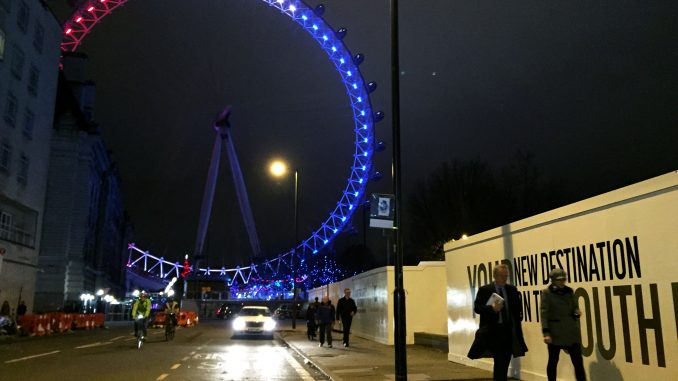
LONDON—It was a pre-booked ticket to Warner Bros. Studio Tour London – The Making of Harry Potter on Sunday that separated junior Samantha Rand and her friends from choosing to go to Paris this past weekend—a weekend that ended in tragedy for the country.
On Friday, a series of terrorist attacks in the French capital left more than 120 dead in the most violent incident Europe has seen in more than a decade, the Associated Press reported.
While the events unfolded, Temple’s safety procedures responded quickly. Study Away students received emails from SMC Study Away or Education Abroad, individual programs and from academic directors to check on their whereabouts, tell them about what was going on and what they should do if anything happened in their host countries.
No Temple students on Study Away programs found themselves amid the chaos, but five who are studying in France through external programs and one Temple Rome student who was visiting Paris that night have been accounted for and are safe, a university spokesman said. The spokesman added 173 students studying in other European countries this semester are also safe.
Study Away students in Europe said the events are, if anything, “surreal.” Some found themselves in the City of Light just a few weeks ago, while others booked trips earlier this week to visit during the holiday season. Many found themselves on the receiving end of “Are you OK?” messages from family and friends.
Rand, a film major on Temple’s London Study Away program, who visited Paris last week, was one of them.
“While we were hanging out at the pubs, my parents were texting me like, ‘You need to go home right now,’” she said.
Julia Jaspers, a junior art history major in Temple’s Rome program, said she kept following newsfeeds of the attacks hours after they happened.
“A reason I went abroad was to get away from the daily violence of Philadelphia, so hearing about this horrific tragedy makes the horrors of the world feel inescapable,” she said.
There’s been mixed reaction—some students said they’re more apt to stay away from large group events during the last few weeks of their programs, while others said there’s no sense in staying in and worrying about hypotheticals.
Sheryl Kantrowitz, the program adviser for Temple’s London group this semester, said she was in immediate contact with Temple’s SMC Study Away offices to get any additional information on next steps, if needed. She said directors teaching in any of the university’s away programs receive safety training on what to do during emergency situations—not just catastrophic events, but natural disasters and even injuries to students.
The thorough emergency procedures were taken on after Temple study abroad students found themselves in London during the July 7, 2005 underground bombings that left 52 dead, said Jack Klotz, the group’s adviser that summer.
It was the student’s first day on the program, Klotz said. Many were flying into London’s airports as reports of the attacks came in.
“While things were happening, students were pretty isolated compared to how you guys feel today,” he said. “Even being able to touch base with someone at home was really, really challenging.”
Klotz said Temple has formed an intimate relationship with International SOS, which connects businesses or organizations that have international travelers with medical, clinical and security assistance.
Klotz also advises any student studying, or planning on studying abroad, to review the U.S. Department of State’s “Worldwide Caution” message, register with its “Smart Traveler” program and Temple’s travel registry. Students studying through Temple’s London or Dublin program with the Foundation for International Education should remember to fill out travel forms whenever they’re planning on taking a trip.
“We prepare our program directors to know that they are the primary coordinator of these emergency responses on the ground and there are all these things in place,” Klotz said. “And, it’s a big part of a program director’s responsibility.”
Patricia Madej can be reached at patricia.madej@temple.edu or on Twitter @PatriciaMadej.
Albert Hong contributed reporting.
Video shot by Aaron Windhorst and edited by Sean Brown.



Be the first to comment